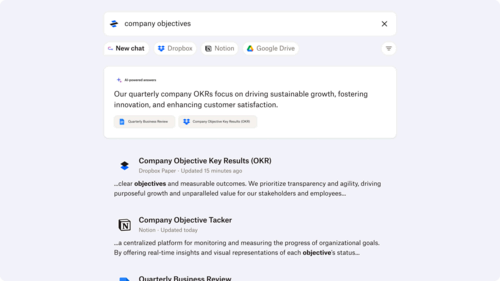A hot potato: In yet another example of a company embracing AI and people being far from happy about it, cloud storage giant Dropbox has been sharing users’ files with OpenAI to power the former’s artificial intelligence seek tool. The setting is enabled by default, though Dropbox says data is only shared when the feature is being actively used. It also emphasized that the data isn’t used to train AI models and is deleted from OpenAI’s servers within 30 days.
Dropbox introduced a number of AI features this year. One is Dropbox Dash, an AI-powered universal seek across various platforms, including Microsoft Outlook and Google Workspace.
The AI setting is part of Dropbox’s ChatGPT-style conversational interface where users can ask questions about files or inquire summaries. To do this, users’ content is sent to OpenAI so an AI language model can access it.
The AI toggle is enabled by default for anyone (or team) outside of the UK and EEA taking part in the Dropbox AI alpha.
Dropbox AI users’ documents are stored on OpenAI’s servers for up to 30 days. Dropbox says only the content relevant to an explicit inquire or command is sent to Sam Altman’s company, to create an answer, summary, or transcript.
An FAQ confirms that user data sent from Dropbox is “never used” to train OpenAI’s internal models, though another section reads that it “won’t let our third-party partners train their models on our user data without consent.”
If you want to ensure your data isn’t sent to third parties outside of Dropbox, follow these steps:
- Log into Dropbox.
- Click your account icon in the upper right corner.
- Click Settings.
- select the Third-Party AI tab.
- Toggle the switch to “off.”
Alternatively, you can get to the page directly using this link.
Even after disabling the toggle, your files could still be sent to OpenAI if they’re shared with someone who is using Dropbox’s AI features.
This isn’t the first time a company has been under the spotlight for sending user data to AI firms. It was revealed in August that Zoom’s updated Terms and Conditions included the right to train AI on users’ calls without consent. The outcry saw Zoom update its T&Cs to state it will not use audio, video, or chat customer content to train its artificial intelligence models without consent.


